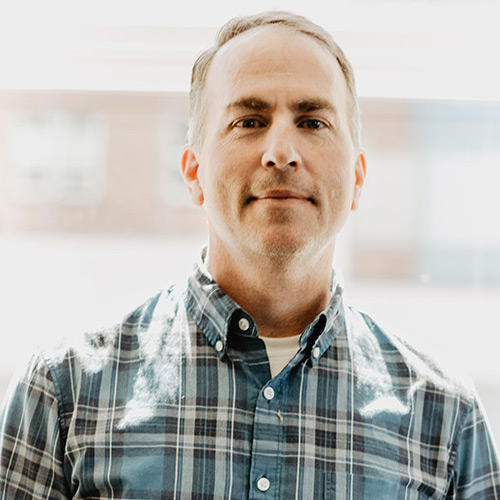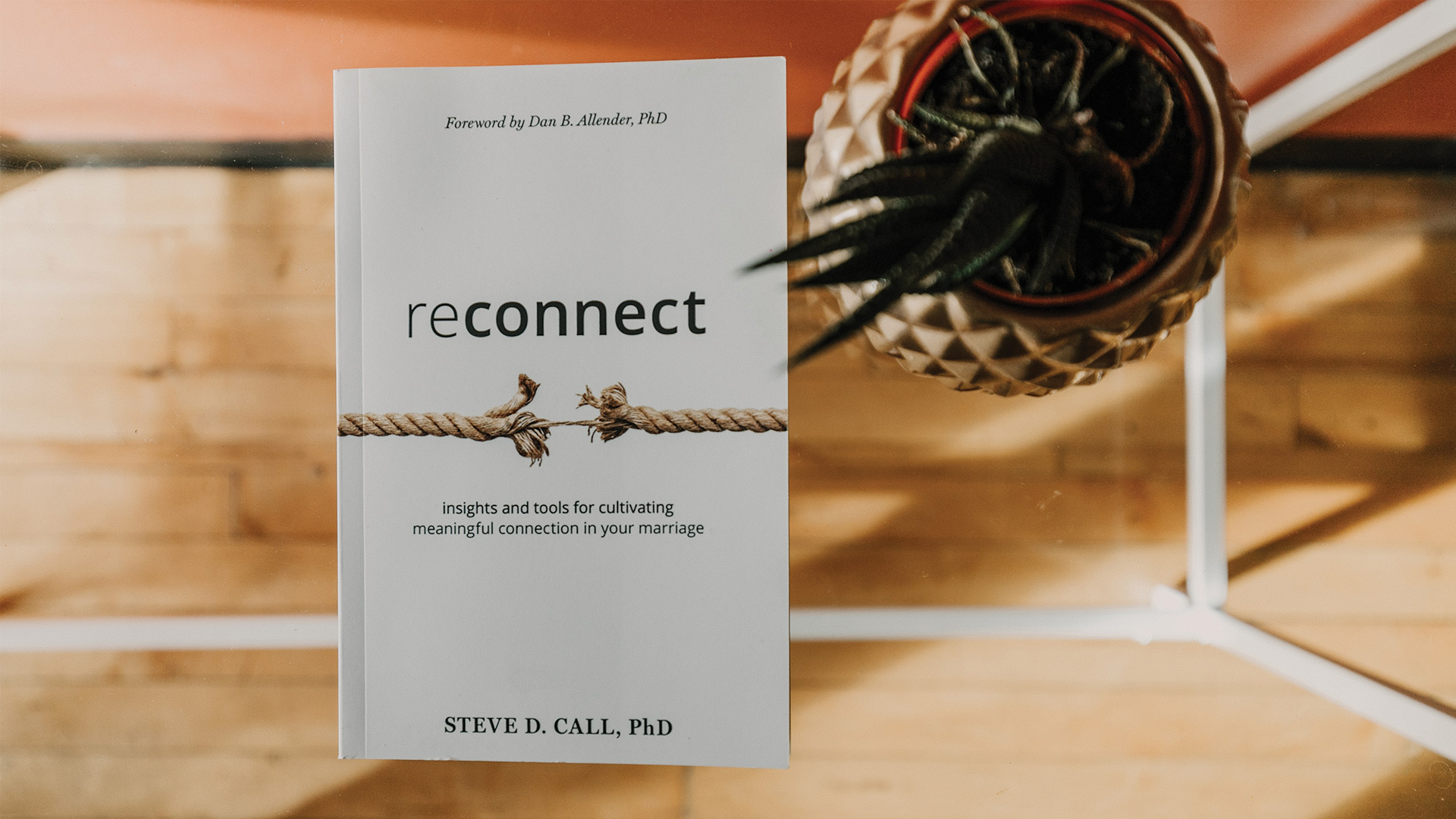Between day-to-day stresses and the unique histories, styles of relating, and approaches to conflict that each person brings to a relationship, it’s no wonder that so many couples struggle with maintaining sustained, life-giving connection. In hopes of addressing that reality and offering practical tools and real, grounded hope, Dr. Steve Call, Associate Professor of Counseling Psychology, has released a new book—Reconnect: Insights and Tools for Cultivating Meaningful Connection in Your Marriage.
“There is no one I am more inclined to speak with and learn from about marriage than Steve. His wisdom is astute, and his integrity is as true as his fly line is straight,” writes Dr. Dan Allender, Professor of Counseling Psychology, in the book’s foreword. “If I were to invite someone to read just one marriage book, including my own, I would recommend this volume.”
Today we’re honored to share a conversation with Steve about what led him to write Reconnect, why disconnection in marriage is so common and so difficult, and his hopes for people who read the book. You can also listen to a two-part conversation with Dan and Steve on The Allender Center Podcast, about the book and the fundamental components of recovering and sustaining connection where it has been lost.
Can you give us an overview of what Reconnect is all about?
This book really is about helping couples become more aware of the various issues that contribute to intermittent and sustained disconnection in their marriage. Reconnect was written to help couples develop new understanding, insight, and strategies to promote deeper connection and healing interaction in their marriage.
Why do you think disconnection is such a common experience in marriage?
Well, I think we each have different desires, hopes, wants, and needs—so of course this will create and lead to moments of disconnection in marriage. What’s missing for most marriages, though, is the process of reconnection when disconnection occurs. For most couples, disconnection is a familiar experience that occurs when we feel hurt. And, most often it occurs in the midst of conflict. When we feel hurt, we often withdraw, shut down, isolate ourselves, distract ourselves as a way to cope. Hurt essentially is the foundation of disconnection. And a failure to understand one another in the midst of the hurt is what perpetuates disconnection. Yet when we become aware of the hurt and move toward our spouse’s hurt without blame or judgement, understanding is cultivated—which is the foundation for reconnection.
“When we feel hurt, we often withdraw, shut down, isolate ourselves, distract ourselves as a way to cope. Hurt essentially is the foundation of disconnection.”
How did Reconnect grow out of your experience—as a therapist, a professor, and a husband?
Over the years in my professional work with couples, I was noticing recurrent and common themes and patterns between couples—and the central theme was a sense of feeling disconnected. And often, what was missing was how to recover, and essentially pursue reconnection. Most couples, including my marriage with Lisa, are often unaware of the dynamics that disrupt connection and unaware of the destructive effects of hurt, shame, and blame. Couples that are experiencing a sense of disconnection crave to experience reconnection but are often needing a roadmap of sorts to be able to return to one another in a way that facilitates reconnection.
What was the writing process like for you?
The hardest part of the writing process was simply taking the time to write. Writing is a terrifying experience. Writing this book has been one of the most vulnerable and transparent endeavors I have ever pursued. Mainly because I have written stories and reflections from my marriage with Lisa to help illustrate some of the common patterns within disconnection. Writing leaves us open to judgement and evaluation from readers, which is why it took me so long to finally write!
What kept you inspired as you worked through these ideas?
My good friend, colleague, and fly-fishing partner Dan Allender was such an influential and inspiring advocate to write. His persistent and consistent encouragement to put into writing my thoughts, ideas, experiences was absolutely essential in being able to finally write this book. And of course, my wife Lisa. She is such a wise, thoughtful, and insightful woman and has really helped shape and craft much of the understanding and clarity within the book.
What are your hopes for people who read this?
My hope is that couples will learn how to stay connected, especially in moments of conflict; that they will discover how shame is such a force in disconnection; that intimacy will be cultivated through their play with one another; and that they will discover insights, tools, and techniques that will help couples navigate the hopeful path toward reconnection.


